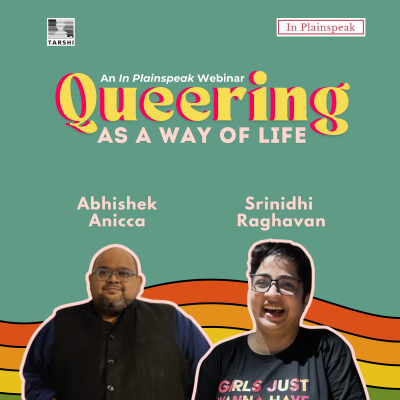queerness
In my rap lyrics, I try to focus on the undercurrents of resilience, hope, and the unwavering spirit of resistance in the face of struggles.
Fire served as a seminal piece of media in my life for that reason, not only because of its queer themes and normalisation of LGBTQ+ relationships but because of how it normalises the pursuit of pleasure as a fundamental part of us, and not something we should be ashamed of.
क्वीयरनेस एक स्वतंत्र पहचान है जो छोटे बच्चों सहित किसी को भी स्वीकार करती है, जो निर्धारित बाइनरी के पथ से अलग चलते हैं।
पूरे देश में ऐसे कई क्वीयर लोग होंगे जो अपनी ‘मातृभाषा’ में अपनी क्वीयर पहचान को एक नाम देने में नाकामयाब रहे हैं।
What does it mean to hold space and extend compassion to ourselves and our communities? Rachel Cargle reminds us to ask ourselves: who would we be if we weren’t trying to survive? Similarly, what would care and vulnerability look like if we weren’t trying to survive? The anarchy of queerness constantly and necessarily resists the capitalist engineering of the Survival Myth: one that wants us to endure an isolated life instead of embracing it with the radically transformative joy of togetherness. Caring for yourself precedes, succeeds, and exists alongside caring for the collective.
To be a gentle / friendship breaker for S. To be // a candle-lit confetti apology for S.
…what is there to misunderstand
about hands that take without asking,
about silence twisted into consent
by those who have never had to be afraid?
Which Came First is a film about identity, desires, queerness–it captures the essence of self-discovery.
What if we refused to assimilate? What if we collectively decided to dress in a way that made it so society could not render us invisible?
At TARSHI, we see queering as more than just an adjective; it’s a verb, an action that involves questioning accepted…
‘Is the future so dark?’ you might ask. I am here to tell you that it is not. As you begin your exploration into the world of queer theory and feminist theory, you will learn that the straightjacket version of sexuality cooked by our families was undercooked.
Apart from the masculinity portrayed in commercial films with heterosexual tropes, Bollywood has produced movies portraying distorted female masculinity.
In my flesh, I must pass
for straight…
But in the digital world,
I can be me.
Moving from the broader implications of the digital workspace it is essential to discuss specifically how these platforms influence the exploration of sexual identity.
People in the city move from their homes to their workplaces and back to their homes. The production of this everyday rhythm of the city makes people accustomed to the sexual overtones that come with it.















